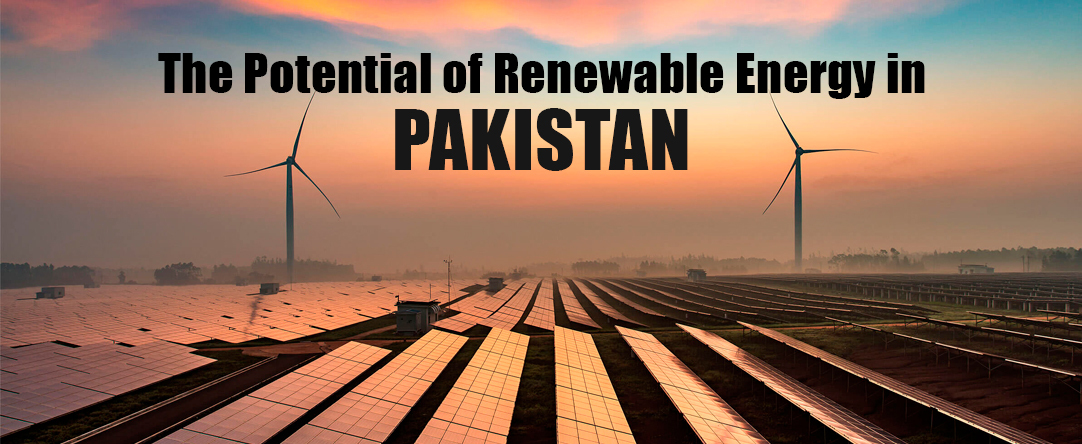
Benefits of Residential Solar Energy Solutions in Pakistan
January 26, 2023
Factors to Consider When Evaluating a Residential Solar Energy Solution Provider in Pakistan
January 19, 2023Renewable energy has been making headlines as of late, with more and more countries turning to it to power their economies. And while Pakistan may be at the forefront of this movement later, there is ample potential for renewable energy to help power the country in the future. This blog post will explore why renewable energy is such a powerful tool and how Pakistan can make the most of it. We will also discuss some of the challenges that need to be overcome to make this happen, but with so much potential, it’s worth taking on these challenges.
Renewable Energy in Pakistan
Renewable energy is a term that refers to energy sources that can be regenerated or replenished by natural processes such as photosynthesis or wind. Renewable energy has the potential to provide sustainable and reliable energy supplies without contributing to climate change. Renewable energy in Pakistan has the potential to significantly contribute to both economic growth and climate change mitigation.
Pakistan has significant potential for renewable energy generation due to its abundant solar, wind, and hydropower resources. Solar power is the most accessible and affordable form of renewable energy in Pakistan, with a currently installed capacity totaling 2 GW. Wind power is also becoming increasingly popular in Pakistan, with an installed capacity of 1 GW. However, hydropower remains Pakistan’s least developed form of renewable energy, with an installed capacity of only 100 MW.
Pakistan Combating Climate Change
Despite these drawbacks, renewables have the potential to contribute significantly to Pakistan’s economic development and efforts to combat climate change. Numerous initiatives have been started by the Pakistani government to boost the use of renewable energy across the country. To encourage research and development into renewable technology, the government, for instance, founded the National Renewable Energy Laboratory (NREL). Furthermore, the government has declared ambitions to construct 400 GW of solar panels by 2030, a challenging but doable objective. If successful, this plan would encourage the use of renewable energies for generating the nation’s electricity and greatly increase the number of rooftop solar systems in Pakistan.
Economic Growth Using Renewable Energy
Overall, renewable energy has great potential to mitigate climate change and promote economic development in Pakistan significantly. The government of Pakistan has made considerable efforts to promote renewables, and private industry players are also contributing to the growth of renewables in the country. Continued effort is required to expand the use of renewables across the country. Still, with proper support, renewables can play a crucial role in improving energy security and promoting economic development in Pakistan.
Benefits
Renewable energy is increasingly popular for powering the world’s economies and homes. In Pakistan, renewable energy has the potential to provide many benefits, including:
1. Reducing CO2 emissions:
Renewable energy sources like solar and wind produce negligible greenhouse gases (GHGs) compared to traditional fossil fuels. This pollution reduction could significantly affect climate change, public health, and economic stability.
2. Improving public health:
Pollution from burning traditional fuels can cause serious public health problems like asthma, heart disease, and cancer. By switching to renewable energy sources, Pakistan could reduce these adverse effects by reducing the release of pollutants into the atmosphere.
3. Enhancing economic stability:
The increasing cost of oil and gas means that renewable energy has become a viable option for countries looking to reduce their dependence on fossil fuels. Using renewables, Pakistan can safeguard its energy supply while also boosting its economy – two essential goals in any country.
4. Supporting local businesses:
Renewable energy projects often create jobs in the engineering and construction industries, which are often undervalued in Pakistan. By supporting local businesses, renewable energy projects can help bolster socioeconomic development in Pakistan.
5. Protecting environmental resources:
Renewable energy projects often require minimal land use and can be implemented in areas that would otherwise be unsuitable for development. This makes renewable energy projects a valuable tool for protecting natural resources – another vital goal in Pakistan.
Challenges
Renewable energy in Pakistan is a potential source of clean, renewable energy that can help reduce the country’s dependency on imported fuels and environmental pollution. However, challenges exist in developing renewable energy in Pakistan because of a need for more available resources and infrastructure and problems with financing and implementation.
Hope
Despite these challenges, Pakistan’s potential for renewable energy is high due to its abundant solar and wind resources. Solar energy suffers from high upfront costs, but the payback period for solar systems is short compared to other forms of renewable energy. Solar power also has the potential to provide uninterrupted power during periods of darkness or cloudy weather. Wind power has lower upfront costs than solar power but faces more significant challenges regarding wind speed and availability.
Final Thoughts
Renewable energy is one of the most important and promising technologies that can provide clean and reliable electricity to billions of people in developing countries. Although many challenges need to be overcome before renewables can play a significant role in the global energy sector, there is no doubt that they have the potential to play an essential role in Pakistan’s future. With a concerted effort from all stakeholders, including governments, businesses, and individuals, renewable energy could help reduce Pakistan’s reliance on imported fuels and improve the quality of life for its citizens.

